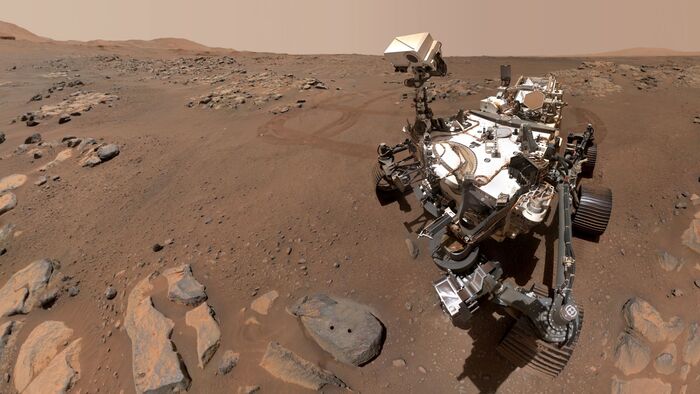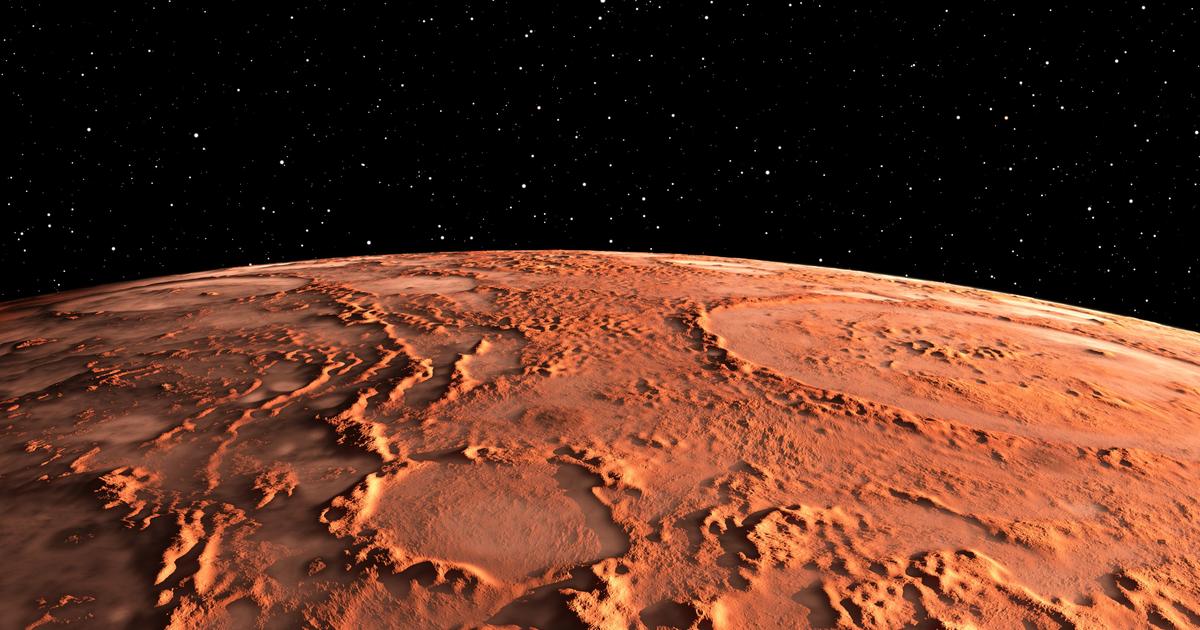Millions of years of doubts and questions were well worth a few minutes of "terror".
Seven minutes, more exactly, on which NASA has communicated massively;
the time needed for his Perseverance vehicle to go from 20,000 km / h to zero and land on Mars, after a seven-month journey.
When its first wheel touched the soil of the Red Planet ten days ago, the nearly three by three meter rover ushered in a new era of scientific research.
With the Chinese probe Tianwen-1 and the Emirati satellite Hope, both recently launched into orbit, never have so many eyes been able to scrutinize the distant, barren and icy twin of Earth so closely.
VIDEO. Perseverance on Mars: NASA broadcasts Martian sound and images of the landing
"At school, they told me it was a dead planet"
“It's a historic feat,” enthuses Caroline Freissinet, CNRS (National Center for Scientific Research) researcher in planetary sciences and astrochemistry.
A turnaround, too, since Martian exploration had come to a halt for nearly twenty years, from 1976 to 1996, after the failure of the Viking mission, supposed to search for life on Mars.
The fourth planet of the solar system regained the interest of the public, and therefore of space agencies, from the mid-1990s. With, at the start, an error of interpretation: discovery in Antarctica, a meteorite from Mars is suspected of transporting fossilized bacteria, therefore life ... But it is, in fact, only mineralogical structures without great scientific interest.
No matter, this bad lead relaunches new missions that revolutionize common knowledge about the red star.
"When I was at school, I was told it was a dead planet," laughs Jessica Flahaut, researcher at the Nancy Petrographic and Geochemical Research Center.
Today, there are volcanoes, wind, liquid water in places.
"
French scientists behind the SuperCam
In recent years, France has been systematically associated with these discoveries.
“Our scientific community is one of the best in the world on these subjects,” praises Pernelle Bernardi, engineer at the Laboratory for Space Studies and Instrumentation in Astrophysics in Paris.
Morning essentials newsletter
A tour of the news to start the day
Subscribe to the newsletterAll newsletters
The French researchers offer in particular "extremely innovative instruments", she recalls.
For Perseverance, they are at the origin of the SuperCam, a jewel of technology which serves as eyes and ears for the robot, through an ultra-developed laser scanner and an integrated microphone.
READ ALSO>
Perseverance: why listen to the sound of the planet Mars?
After 90 days to verify that its operation is intact, the device will be able to start exploring and digging Martian soil to bring back, by 2030, potential traces of past life.
This is proof that it can originate elsewhere than on our planet.
"These samples could change humanity's relationship with the universe", begins to dream Franck Montmessin, researcher at the Atmospheres, Environments and Space Observations Laboratory.
And bring many elements on the very origin of life on Earth.










